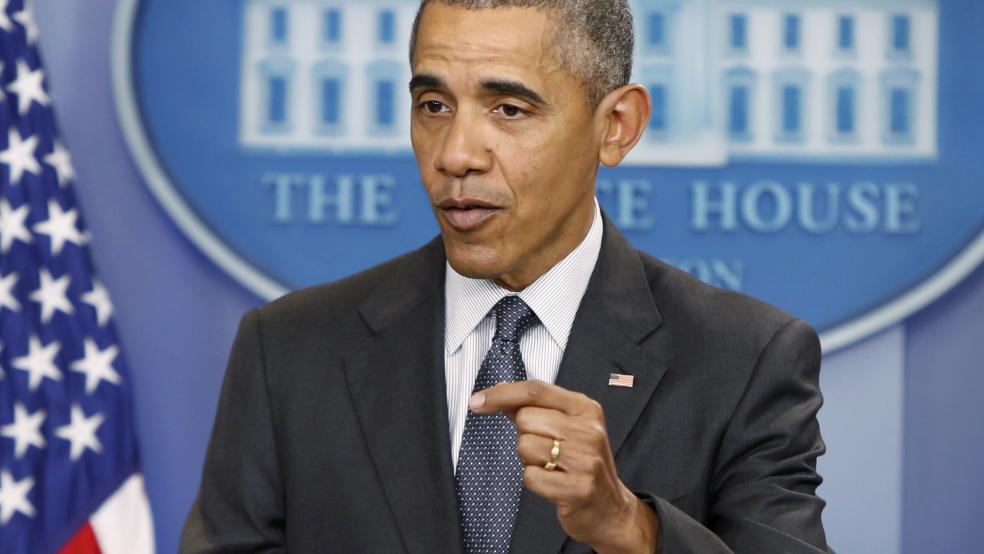Hillary Clinton is not the only Democrat Feeling the Bern. Our thin-skinned president is visibly annoyed by Bernie Sanders, whose unlikely success is fueled by angry liberals—many of whom are under 30. How dare they rail about his trade policies, criticize Obamacare or condemn the widening of income inequality under his watch? After eight years in which Obama has steadfastly worked to fulfill his campaign pledge to ‘transform” America, how can so many Democrats spurn his accomplishments?
Republican contender Donald Trump has piled on, critical of trade deals and “stupid” policies that he blames for jobs lost to China and Mexico.
A frustrated Obama is playing defense by bashing Big Business. For years he has walked a fine line, cautiously imposing his agenda on industry while worried that his policies would be blamed for the disappointing rate of economic recovery. That is no longer the case.
Related: Will Clinton Follow Obama’s Legacy in Taking On Big Business?
The Obama administration is ramping up a flurry of new rules governing everything from food labeling to pay for white-collar workers and how financial advisors must operate, while also rejecting the “living wills” of big banks, and threatening to sue fossil fuel companies for questioning climate change.
More significantly, the Obama White House recently blocked a tax inversion deal involving Pfizer and Allergan, an outcome described in the Financial Times as “a watershed victory for an interventionist Washington.” It was a shocking measure from the Treasury, changing the rules to single out a specific deal. The ramifications, according to tax lawyers, ignore commercial considerations and will go way beyond the deal under scrutiny.
Meanwhile, the Justice Department recently filed suit to stop a merger between oilfield giants Halliburton and Baker Hughes. Though this administration has blocked a number of high-profile mergers such as the proposed purchase of Time Warner Cable by Comcast last year, the noted concern for “customers” being hurt by increased concentration is laughable. Halliburton and Baker Hughes sell to oil and gas companies; maybe the energy industry should celebrate the move as the first-ever measure from the Obama White House supportive of fossil fuel producers.
Because of these two interventions, the value of abandoned deals this year is now the highest since 2007, on the cusp of the financial crisis. The Obama White House has killed more deals than the Clinton and G.W. Bush presidencies combined. (FT April 8 “US Companies ditch $370 billion of deals during Obama tenure).
Related: Tale of the Red Tape: $22 Billion in Savings from Cutting Ridiculous Regulations
Americans most likely support the efforts to stop inversions, like the Pfizer deal, in which U.S. companies try to lower their tax bills by moving overseas. Many cheer the notion of restricting corporations from exporting manufacturing operations to lower-wage locales like Mexico. But, they should not penalize companies operating within the rules set out by government. Rather, they should blame the legislators who have driven companies out of the country.
If the United States cannot compete effectively with other nations, in spite of our enormous advantages, something is wrong. Yes, our labor rates are multiples of those in China or Mexico, but we also have cheap energy, the best universities in the world, English is our spoken language, financial backing is plentiful and we are at the doorstep of the world’s largest consumer market.
Moreover, we have a rule of law and low crime rates. Those are significant advantages – which our government should be building on, as opposed to undermining. Most executives, given a choice, would rather do business in the U.S. than elsewhere.
Related: Obama Says Both Left and Right Are Wrong on Wall Street Rules
Most critically, it is our tax code that is the outlier, with its uniquely high corporate rate and one-of-a-kind taxation of profits earned overseas. This double whammy has no fans; nearly everyone in Congress agrees that tax reform, and especially the treatment of corporate taxes, is way overdue. Why hasn’t it happened? Perhaps because any accomplishments from Congress undermines President Obama’s favorite excuse for inaction – the obstructionist Republicans.
One of our country’s most convincing measures of success is that, unlike in Cuba or North Korea, people are free to leave the United States, but few choose to do so. Freedom of movement is a potent test. The same holds for businesses. If the U.S. has to conjure up rules to prevent companies from fleeing something is desperately wrong. The Obama team would argue that it is protecting the tax base and jobs. But faced with a harmful tax code and capricious government, what entrepreneur would choose to start a business in the U.S.?






